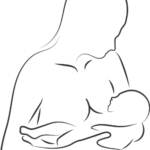Image credit to India Times
Can You Overfeed a Newborn?
Perhaps the biggest concern during a baby’s first months is how much milk he or she is getting. Like any good caregiver, you want your baby to be healthy and happy, and well-fed. But can you overfeed a newborn?
According to most healthcare experts, overfeeding is possible but very rare, especially in breastfed babies. So the key is that you’re attuned to your baby’s hunger cues and their fullness cues and that you’re honoring those—regardless of how much milk you think your baby should be drinking, says Joel ‘Gator’ Warsh, MD, a board-certified pediatrician and author of “Parenting at Your Child’s Pace.”.
“Overfeeding an infant is unlikely to occur, especially in breastfed babies, who self-regulate their intake based on internal hunger and satiety cues,” says Dr. Warsh. “This could be more possible, however, in bottle-fed infants due to the ease of feeding and maybe by the encouragement of the caregiver to finish the bottle.”
Below our experts unravel the mystery of overfeeding newborns as well as discuss the differences between the risks of overfeeding bottle-fed babies and breastfed babies. You’ll also find tips on how to recognize the signs that your baby is overfed as well as guidelines on just how much your little one should be eating.
The Truth About Overfeeding Newborns
Many health professionals advise that you feed your baby when they’re hungry and stop when they’re full. Learning these cues and following them to the best of one’s ability is what may set your baby on a healthy trajectory, especially when it comes to weight.
Indeed, one study found that if the parents ignored these cues or coaxed their baby to eat more than they needed, especially during their first few days of life, this increased the likelihood that their child would be overweight by the time they were 4 years old.
Overfeeding is relatively uncommon, but it can happen—particularly if you bottle-feed your baby. For example, it requires much less effort to drink from a bottle, so babies who love the soothing act of sucking can easily receive too much milk during feeding. That being said, with awareness and guidance, this is not something that most parents have too much to worry about.
“Newborns suck when hungry, and often for comfort,” says Jenelle Ferry, MD, a board-certified neonatologist and director of feeding, nutrition, and infant development at Pediatrix Medical Group.
Then again, babies who eat very fast can likewise take in more since their fullness hints have not yet gotten up to speed with the sum they’re eating. You may even be overfeeding your baby in case you coaxed them into eating more after they stopped or tried to influence them to complete their bottle amid each feeding. This is the reason responsive feeding for babies is recommended by numerous pediatricians.
Responsive feeding means not forcing your baby to have more than they want and worrying less about the amount they take in each bottle.
Recognizing the Signs That Your Baby Has Had Enough
Being able to recognize when your baby has had enough in a feed can really help you significantly not to overfeed your baby. Come up with a reaction to these cues and act upon it immediately:3
Seems less interested in feeding—stops and starts a lot
Spits up a bottle or pushes away from breast
Turns head away from being offered the bottle or the breast
Closes mouth to bottle or breast offer
Eats more slowly
Falls asleep while being fed
Appears distracted or not interested in feeding
Breast-Feeding and Overfeeding
You’re unlikely to overfeed a breastfed baby,” says Robyn Rosenberg, MD, a pediatrician and founder of Boston Community Pediatrics. Breastfeeding not only requires more work from your baby but is a slower process. This means babies have time to regulate their satiety cues.
“I usually give the analogy that breastfeeding is like going for a run for babies, and bottle feeding is like sitting on the couch watching TV,” says Dr. Riseberg.
It’s also very unlikely your breastfed baby will be overfed as a newborn, especially during those first few days of life, due to the pre-milk or colostrum your body produces, says Ferry. “Colostrum is initially produced in very small quantities, and the volume of colostrum and then early milk increases over the first week of life to coincide with changes in a newborn’s stomach size.”.
Does It Feel Like Your Baby Is Always Hungry? Here’s What to Do
Bottle Feeding and Overfeeding
Researchers say the current guidelines on formula feeding are geared more toward the safe preparation of formula rather than the volume that should be given to a newborn at one time, which can create some unintended consequences in reality. Indeed, without guidelines on upper limits to prevent overfeeding, as many as 43 percent of parents in one study overfed their bottle-fed baby.
In addition to this, bottle-fed babies can also sometimes eat too fast for their stomachs to keep up, according to Dr. Riseberg. Sucking is a means through which babies comfort themselves, so at times, they will continue to suck even though they are full.
“If the baby starts pushing the bottle away after they’ve eaten for a good amount of time, you should stop the feeding, burp the baby, and see if they want more,” she says. “If a baby seems full, do not force the baby to eat more. It is important to realize that, just like adults, babies sometimes are more or less hungry at different times.”
In those early days, your bottle-fed newborn will eat every two to three hours. As this can be exhausting for new parents, they may try at times to get their baby to eat a little more in the hopes that they will then sleep longer, especially at night.
“It’s best to feed babies when they demonstrate hunger cues—putting their fingers in their mouths, crying, rooting, and opening their mouths, rather than adhering to a strict time schedule,” says Dr. Riseberg. “Most babies will need to feed every two to three hours at night, too, which can be tough for new parents who might be feeling overtired. But this is completely normal.”
Signs You’re Overfeeding Your Newborn
Most people believe that if their baby is huge—that is, if he has gained excessive weight or is at a higher percentile on the growth chart, it may be due to overfeeding. Experts negate this by saying that this is not necessarily so.
“When looking at a baby’s weight gain, it’s important to look at their growth relative to themselves,” says Dr. Ferry. “So if a baby is beyond the 90th percentile but always has been and stays growing along that same curve, that wouldn’t be concerning.”
However, she says, if an infant is steadily gaining weight across percentiles—like they started off at the 25th percentile and then went up to the 90th percentile—those are signs that they might be overfed.
“We want babies to grow and gain weight appropriately,” she says. “Excessive weight gain from overfeeding in infancy can lead to increased risk for difficulties related to metabolic syndromes later in life, so it’s important to discuss feeding volumes and growth with your pediatrician.”
How you feed your baby, like whether you’re breastfeeding versus bottle feeding, would also factor in here, adds Dr. Warsh. “Sudden or extreme weight gain could suggest overfeeding particularly in bottle-fed infants. High percentile weight gains might not be concerning if exclusively breastfed with satisfactory development progress.”
One of the ways to know if you’re overfeeding your baby is through the cues your baby makes right after feeding. Overfeeding may lead to discomfort, spitting, and gastrointestinal upset, subsequently building an association of discomfort in the mind with feeding.
Also Read : Your 10-Month-Old Baby’s Development and Milestones
Guidelines for Feeding Newborns
“One of the most common concerns parents express in the first days of life is that their baby isn’t getting enough to eat, but the stomach size, or volume it can hold, changes significantly in a newborn over the first 2 weeks of life,” says Dr. Ferry. “[Their stomach] starts out about the size of a cherry at birth and increases to about the size of an egg around 2 weeks.”
Within the first 24 hours of birth, an average infant gets one to three teaspoons, or about half an ounce, of colostrum if you’re breastfeeding, says Ferry.
“At this stage, the stomach holds only about five to seven mL. Babies won’t necessarily eat every three hours that first day but usually are eating about every two to three hours by the second day—or sometimes even more. Newborns also cluster feed and seem constantly hungry. This is a normal mechanism to stimulate milk production and not a sign of being underfed.”
You can feed your formula-fed newborn about one to two ounces of infant formula every two to three hours in those first days of life. However, according to Dr. Ferry, it isn’t until the two-week mark that your baby’s tummy can actually hold two to three ounces.”By two weeks of life, you can go by the commonly used ‘rule’ of two to three ounces every two to three hours,” she adds. “But this can also vary vastly depending upon your baby.”Also important to note in these early days is that just because your baby cries doesn’t necessarily mean they are hungry.If your baby cries, you may need to hold or change them. Try watching for other hunger cues rather than relying solely on crying. This can help you avoid overfeeding.










